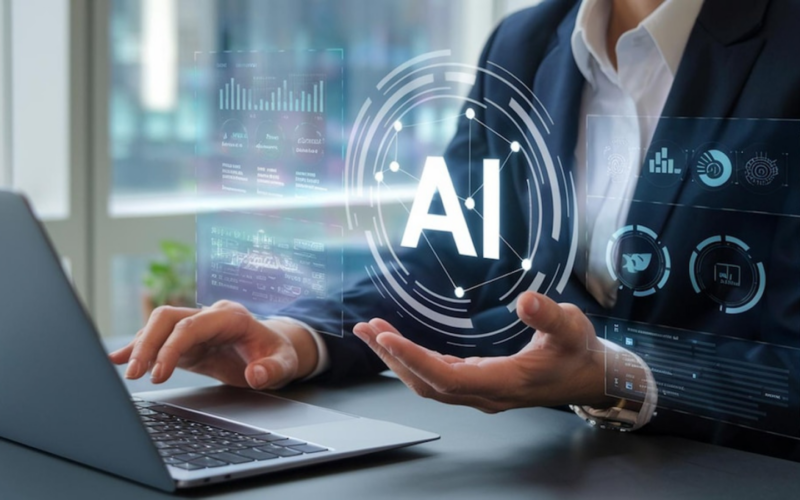From Code to Creativity: How Applied Generative AI Is Expanding Career Horizons
Generative AI as a Bridge Between Technology and Creativity
When artificial intelligence first entered the mainstream, it was primarily viewed as a technical tool something reserved for data scientists, programmers, and engineers. But with the rise of generative AI, the boundaries between technical expertise and creative expression have started to blur. Today, writers, designers, educators, marketers, and strategists are engaging with AI in ways that transform not only their work but also their career opportunities. This shift makes an Applied Generative AI course a timely and valuable pathway for professionals across diverse domains.
Beyond the Realm of Coders
Generative AI is no longer confined to the world of code and algorithms. Tools now generate design mockups, write persuasive copy, and even compose music. For professionals outside traditional tech roles, this means they can actively participate in AI-driven innovation without needing to become full-time programmers. Instead of learning only how to code, they can focus on learning how to apply AI effectively in their specific domain.
For instance, a marketing professional might use generative AI to craft customer-specific campaigns at scale. An educator might leverage it to build adaptive lesson plans that cater to individual learning styles. These are not futuristic scenarios—they are real-world applications already unfolding in organizations that are embracing AI-driven strategies.
Applied Learning as the Common Ground
The challenge, however, lies in moving from basic tool usage to strategic application. While experimenting with AI platforms may provide surface-level familiarity, it does not cultivate the depth required to integrate AI meaningfully into a profession. This is why applied education has become so critical.
An Applied Generative AI Online Course provides the structured environment needed to explore practical use cases across fields. It focuses on problem-solving with AI rather than just theoretical knowledge. Learners experiment with building workflows, designing prompts, testing outputs, and addressing ethical questions specific to their industry. In doing so, they acquire both the technical fluency and contextual awareness necessary to make generative AI a true career asset.
Expanding Career Horizons
The expansion of generative AI into non-technical fields is reshaping the career landscape. Traditional creative roles such as design and writing are evolving, while entirely new positions are emerging—prompt engineers, AI content strategists, and human-AI collaboration specialists, to name a few. Professionals who can harness AI not as a replacement but as a collaborator will find themselves in demand across industries.
For example, consider the growing need for professionals who can fine-tune generative models for specific industries. A healthcare researcher trained in applied AI can guide systems to generate clinical insights without compromising accuracy or ethics. Similarly, a legal professional can use AI to draft structured documents while applying domain expertise to ensure compliance and relevance. In each case, generative AI expands—not limits—the scope of human contribution.
The Human Element in Creativity
While AI can generate impressive outputs, it lacks human context, empathy, and vision. True creativity often emerges from lived experiences, cultural nuances, and ethical considerations—areas where humans excel. The future of generative AI lies not in replacing human imagination but in amplifying it.
Applied learning nurtures this human element by teaching professionals how to critically evaluate AI outputs, refine them, and align them with meaningful goals. Rather than passively accepting what AI generates, learners become active curators of its contributions. This shift positions them not as consumers of technology but as co-creators shaping its potential.
Looking Ahead
The career opportunities tied to generative AI are only beginning to unfold. As industries continue to integrate the technology, the demand for professionals who understand how to apply it responsibly and effectively will grow. Those who take the initiative to learn now will be positioned at the forefront of this transformation.
An Applied Generative AI course doesn’t just prepare learners for today’s opportunities; it helps them anticipate tomorrow’s. By mastering applied skills, professionals ensure they can adapt to the evolving interplay between technology and creativity—an interplay that will define careers across disciplines in the years to come.
Conclusion:
Generative AI has widened the definition of who can participate in the AI revolution. It is no longer the domain of coders alone but a tool that invites collaboration between technology and creativity. By engaging with an Applied Generative AI Online Course, professionals across industries can learn how to turn AI into a partner in expanding their career horizons. In the future, success will belong to those who can blend technical fluency with human creativity a combination that applied generative AI uniquely empowers.
Keep an eye for more latest news & updates on Knowledgearrow!





